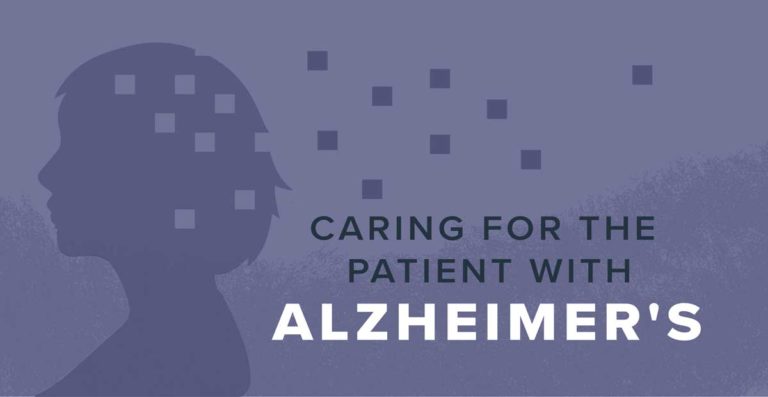This September is World Alzheimer’s Month, a global event designed to raise awareness for dementia, how it affects patients around the world, and how individuals should care for those struggling with this disease. According to Alzheimer’s Disease International, 2 out of every 3 people globally believe there is little or no understanding of dementia in their countries. In honor of this event, we’ll look at how nurses can go about caring for patients with this disease and how they can be more sensitive to the patient’s needs as their mental condition continues to deteriorate.
Everyday Care for Patients with Alzheimer’s
Patients with Alzheimer’s may need help with a range of everyday tasks, including eating, bathing, dressing, and moving around the house or healthcare facility. It’s the caregiver’s job to help the patient with their daily routine to make sure they have everything they need and that they don’t hurt themselves by accident. Depending on how the disease has progressed, some patients may not remember who the caregiver is and may react with anger or confusion as the caregiver tries to give assistance. Nurses and caregivers should make an effort to approach each interaction with the patient with ease, while gently reminding the patient who they are and why they’re there.
Patients with Alzheimer’s tend to be prone to falls, accidents, dehydration, fever, and other common medical conditions. They may forget to watch where they’re going when climbing the stairs or they may forget to drink water during the day. Nurses and caregivers should be on the lookout for these medical problems and related symptoms as they continue caring for the patient.
Communicating with Patients with Alzheimer’s
Communicating with a patient with Alzheimer’s can be difficult if their mental condition has deteriorated. Patients may become hostile or even violent if they are confused about what’s going on. That’s why it’s so important for nurses and caregivers to communicate as best they can with the patient even if their ability to grasp the situation is limited. Nurses and caregivers should make an effort to talk the patient through an experience if it frightens or upsets them.
Nurses can try communicating with the patient by sitting next to or in front of them, maintaining consistent eye contact, using a normal tone of voice, and explaining or re-explaining the situation several times over. If the patient is struggling to communicate, nurses can try to help the patient along by asking questions and helping them complete their sentences. It’s always best if the caregiver remains calm even if the patient gets upset.
Safety Concerns
Nurses and caregivers will need to go out of their way to make sure the patient is living in a safe environment where the chances of them hurting themselves is diminished as much as possible. Nurses and caregivers should be on the lookout for loose cords and wires that might cause the patient to trip and fall. Windows and doors should always be securely locked with a reliable alarm system in place. Warning signs should be placed around potentially harmful surfaces and items like the stove, heater, radiator, and garbage disposal. Rooms and hallways should be well-lit to make sure the patient can see where they’re going. The space should also be well-organized and free of clutter, so the patient can move throughout the room with ease.
Staying Healthy as an Alzheimer’s Caregiver
It’s also important for nurses and caregivers to care for themselves, so they can better care for the patient. Nurses and caregivers may get frustrated or overwhelmed when trying to care for a patient whose mental condition always seems to be influx. Nurses and caregivers should try to create a sense of routine and order to help them keep the day’s events on track. They should also make room in their schedule to care for themselves by getting plenty of sleep, talking to friends and family, getting exercise and eating a balanced diet. If a caregiver feels that they need assistance when caring for the patient, they should reach out to a colleague or their employer for advice and support.
Caring for a patient with Alzheimer’s can be challenging and may become more difficult over time. Nurses and caregivers should prepare themselves for these changes as they try to anticipate the patient’s needs. For more information and tips on how to care for patients with Alzheimer’s, caregivers can visit the National Institute of Aging.
